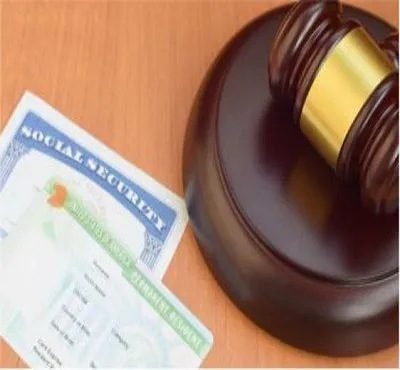We do not request reimbursement of costs
(such as repayment for obtaining medical records)
from veterans nor from people who suffer from multiple sclerosis.
- Call today for a free evaluation
- 1-888-774-7243
How Social Security Determines Disability
In order to qualify for Social Security Disability (SSD) or Supplemental Security Income (SSI) you must meet certain technical qualifications. I have written about these technical requirements before, so I will only briefly touch on them here.
For SSD you generally will have to have worked for 10 years in this country while paying taxes. For SSI, you must meet a poverty standard and either be an American citizen, a legal refugee, or a person who has been granted asylum by the federal government.
Assuming these technical criteria are satisfied how does the Social Security Administration determine if you are disabled?
 In every case, SSA uses a 5 step test in order to determine your disability.
In every case, SSA uses a 5 step test in order to determine your disability.
- They ask whether you are working under their rules. If you are working under their rules, then you lose. If you are working more than 10 hours a week and making more than minimum wage, SSA will likely conclude that you are working.
- Assuming you are not working, SSA will ask whether you have a “severe” impairment. This sounds very serious, but it is not. This is one of many examples within the SSA disability system where words do not mean what you would think they mean. A “severe” impairment for SSA means any medical or psychological condition which has more than a minor effect on you. It is very unlikely that you will be denied at this step so long as you have some type of genuine medical condition.
- SSA will compare your condition to a set of rules contained in their regulations called “the Listings.” “The Listings” include very specific medical criteria and are generally extremely complex. Many medical conditions are included in “the Listings,” but most are not. To meet a Listing, you must show a truly profound level of limitation, well beyond mere disability. If you meet or equal a listing, then the analysis ends and you are conclusively entitled to benefits.
- Assuming your case has reached this step, you must prove an inability to do your prior work. You must prove not only the inability to do your prior job as you actually performed it, but also that you cannot do that job as it is generally performed in the national economy. Even if your old job no longer exists, if you are medically capable of doing it, then you will be found not disabled. As you can see some of the rules and regulations in this process are counter-intuitive. In many respects the disability adjudication process is a game and has little to do with things occurring in the real world.
- Assuming you can no longer do your prior job, SSA will seek to determine whether you can perform other jobs that exist in the national economy. It is irrelevant that you may not be able to find such jobs or that an employer would not actually hire you for them. On the other hand, the rules at this fifth step are very favorable to those over 50 years of age if the case is handled properly. In fact, they may find you capable of other jobs and still find you disabled, if you can present a well-crafted argument. Again, these are just more aspects of the Social Security disability system which are divorced from real world factors and seem based on purely hypothetical considerations.
But they are the law and you must know these rules if you want to win. Assuming you can satisfy step five, then you are entitled to benefits.
Your case may be dependent on crafting the right argument at any of these 5 steps. Every case is different with strengths and weaknesses at probably each one of these 5 steps. In order to win, you need someone who can guide you through each of these 5 steps to get the outcome you desire. Call Us Today For More Information
For a Free Evaluation
Monday : 9am–5pm
Tuesday : 9am–5pm
Wednesday : 9am–5pm
Thursday : 9am–5pm
Friday : 9am–5pm
Saturday : Closed
Sunday :Closed

